Pennsylvania Skill Gaming Bill Seeks Reduced Tax From Gov. Shapiro Pitch
Posted on: March 5, 2024, 01:39h.
Last updated on: March 6, 2024, 12:00h.
Legislation to regulate skill games in Pennsylvania proposes a significantly reduced tax rate than what Gov. Josh Shapiro (D) set out to collect in his proposed 2024-25 budget bill.
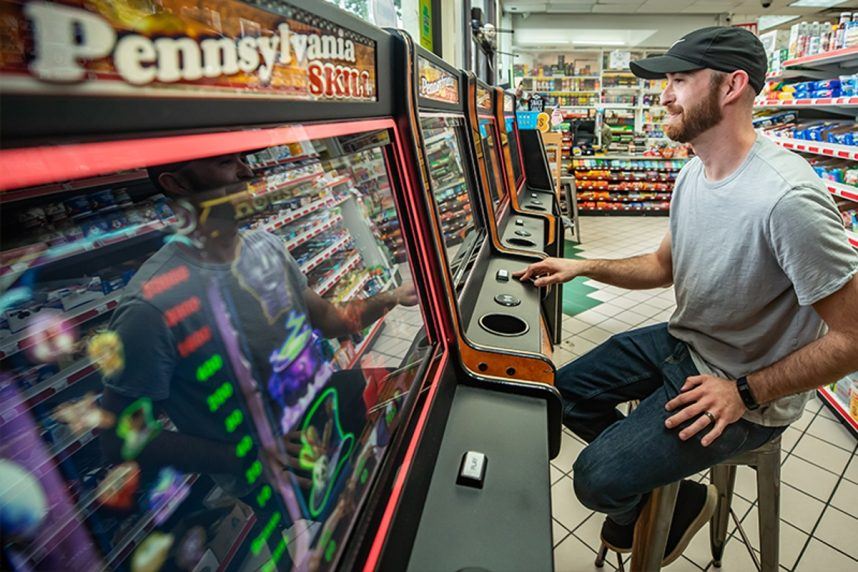
Pennsylvania courts ruled last year that the grey machines that look and operate like casino slot machines aren’t illegal gambling devices because they incorporate an element of skill. Unlike a slot machine that automatically credits a winning outcome, skill games task the player to identify winning paylines.
Simply because a machine involves a large element of chance is insufficient to find the machine to be a gambling device,” Dauphin County Judge Andrew Dowling wrote.
While Pennsylvania Attorney General Michelle Henry is appealing the ruling to the state Supreme Court, Shapiro and some lawmakers think it’s time to regulate the grey machines to protect consumers and tax them for the state’s benefit.
In his budget presentation, Shapiro assumed taxing skill games at a rate of 42% to generate an estimated $150 million in new tax money during the commonwealth’s 2024-25 fiscal year. The tax stream would be projected to grow to upwards of $300 million annually by the 2025-26 fiscal year.
Newly introduced legislation seeks to keep more skill gaming money with host businesses, machine operators, and distributors. That would cut into the state’s share. But supporters say the bill would aid small businesses, and, therefore, has a better chance of mustering enough support in Harrisburg.
Skill Gaming Measure
House Bill 2075 was introduced late last month by a bipartisan group of 20 House lawmakers, with 10 Democrats and 10 Republicans lending their names. The skill gaming statute seeks a 16% state tax on gross profits.
The bill would mandate how operators, distributors, and host businesses share their proceeds. The legislation suggests that of the 84% of the gross gaming win, the host skill gaming establishment and machine operator each receive 40%, with the distributor receiving 20%.
The statute defines a distributor as an entity licensed by the state to sell or lease skill games to an operator. An operator is a manufacturing entity licensed by the state that serves as a middleman. That company is responsible for delivering the skill games to the host business and providing onsite collection of revenue and system data.
In Pennsylvania, the leading skill gaming title is branded Pennsylvania Skill. The machines run on software developed by Pace-O-Matic, a Georgia-based skill gaming distributor. The devices are assembled by Pennsylvania-based Miele Manufacturing.
Along with taxes, the state would receive one-time fees of $1 million from each approved skill gaming distributor under HB 2075, $25K from approved operators, and $250 per host establishment. Those licenses must be renewed annually at $100K, $5,000, and $250, respectively.
The machines wouldn’t be regulated to a minimum or maximum payout percentage. But the games would be prohibited from becoming harder when played by a highly skilled player.
Businesses would be allowed a maximum of five skill gaming machines. Each bet would be capped at $5 a play, with maximum payouts per game capped at $5,000.
Committee Consideration
HB 2075 was directed to the House Gaming Oversight Committee on February 28. The committee hasn’t set a date for when it might review the skill gaming measure.
Rep. Danilo Burgos (D-Philadelphia), an HB 2075 sponsor, says providing a regulatory framework for skill games will help small businesses that continue to feel the impact of the COVID-19 pandemic through inflation and higher overhead costs.
Skill video games have given businesses new life during the pandemic, helping them to weather the economic storm,” Burgos wrote in a HB 2075 memo.
The casino lobby is strongly opposed to regulating skill games. The state’s commercial gaming interests have paid hundreds of millions of dollars in licensing fees to operate slot machines at their 17 brick-and-mortar casinos. The casinos say skill games poach into their slot play and also hurt iGaming.
However, the Pennsylvania Gaming Control Board reported in January record growth for the state gaming industry. The casinos and online gaming interests won almost $5.7 billion from players in 2023. Brick-and-mortar slot revenue climbed 3% to $2.46 billion.
Related News Articles
Pennsylvania Skill Gaming Bill Receives Testimony From Casino Lobby
Most Popular
Whiskey Pete’s Casino Near Las Vegas Closing After 47 Years
FTC: Casino Resort Fees Must Be Included in Upfront Hotel Rates
Genovese Capo Sentenced for Illegal Gambling on Long Island
NBA Referees Expose Sports Betting Abuse Following Steve Kerr Meltdown
Former Resorts World & MGM Grand Prez Surrenders Gaming License
Most Commented
-
Caesars Virginia in Danville Now Accepting Hotel Room Reservations
— November 27, 2024 — 8 Comments -
Whiskey Pete’s Casino Near Las Vegas Closing After 47 Years
— December 17, 2024 — 8 Comments -
NBA Referees Expose Sports Betting Abuse Following Steve Kerr Meltdown
— December 13, 2024 — 7 Comments -
Former Resorts World & MGM Grand Prez Surrenders Gaming License
— December 15, 2024 — 7 Comments
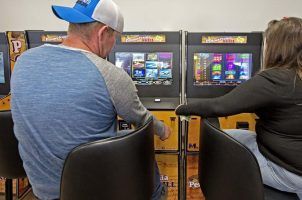
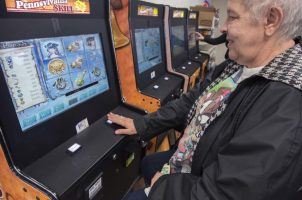
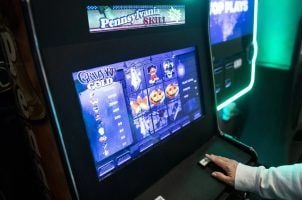
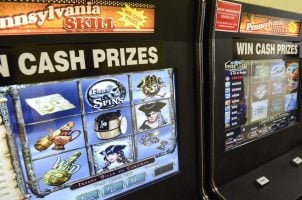












No comments yet